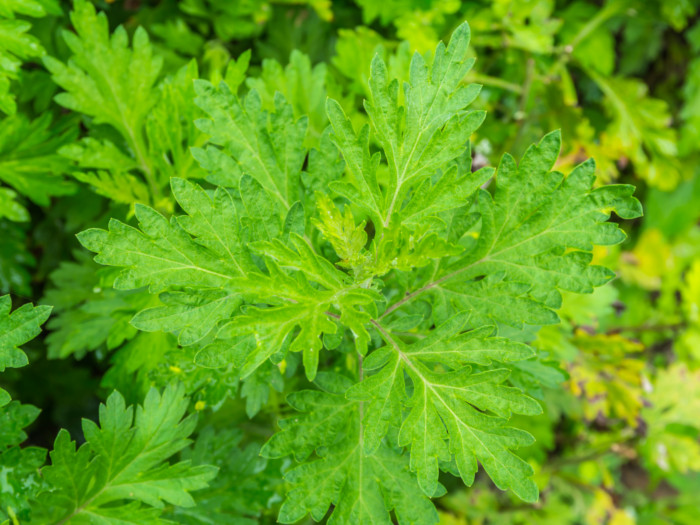The health benefits of davana essential oil can be attributed to its properties as an antiseptic, antiviral, disinfectant, emmenagogue, expectorant, relaxant, and vulnerary substance.
What is Davana Essential Oil?
The essential oil of Davana is extracted by the steam distillation of flowers of the Davana plant. This plant is botanically known as Artemisia pallens and has been in use in India for religious purposes since time immemorial. There, the fresh flowers of Davana are offered to Lord Shiva, perhaps as a token of recognition of its medicinal properties. The chief components of Davana essential oil are a ketone called davanone, linalool, a few terpenoids, and davana ether.
Health Benefits of Davana Essential Oil
Let us now share some of its medicinal properties and see how we can benefit from them.
Protects Against Viruses
Davana essential oil builds up effective protection against viral attacks. It ruptures the protective covering of viruses, called the cyst, and thereby kills the virus. It cures viral infections such as a cough and cold, influenza, and measles, among others.

Davana essential oil is used by luxurious perfumeries around the world to enhance fragrances with its fruity, grape-like aroma. Photo Credit: Shutterstock
Heals Wounds
Davana essential oil fights infections that cause septic of internal and external wounds, urinary tracts, urethra, kidneys, and other body parts. This should be applied without delay in mild concentrations in cases of cuts and wounds, particularly from iron objects or dirty abrasives.
Fights Infections
Davana essential oil fights infections from bacteria, microbes, fungi, and viruses and helps cure infectious diseases. If used in fumigants, sprays, or vaporizers, it disinfects the whole area and makes it free from microbes. Perhaps this is one of the reasons why Davana flowers are used during religious worship. [1]
Emmenagogue
Davana essential oil opens up blocked menstruation and makes periods regular. It is good for curing menstrual spasm. It also eases pain associated with menses and gives relief from other symptoms such as fatigue, nausea, pelvic pain, and cramps.
Eases Breathing
The essential oil of Davana loosens up tough coughs and phlegm depositions in the respiratory tracts and makes breathing easier. It relieves congestion and reduces coughs, while also treating other problems such as a headache and pain in the joints that are often associated with having a cold.
Relaxes the Body
The essential oil of Davana relaxes contractions in muscles and blood vessels, while also having a relaxing effect on the brain and the nervous system, thus fighting anxiety, stress, and anger. This helps you get a good sleep as well.
Speeds up Healing
This property of Davana essential oil helps heal wounds faster and protects them from infections.
Other Benefits
This oil also has mild vermifuge and insect repellant properties. It also shows hypotensive properties and brings down blood pressure. Davana oil is also used in making perfumes. [2]
Word of Caution: This oil is not toxic, but it can cause irritations and should, therefore, be avoided by pregnant women.
Blending: Davana essential oil blends with most of the Citrus, Spicy, and Woody Essential Oils such as neroli, geranium, grapefruit, cedarwood, caraway, coriander, and chamomile essential oils.
